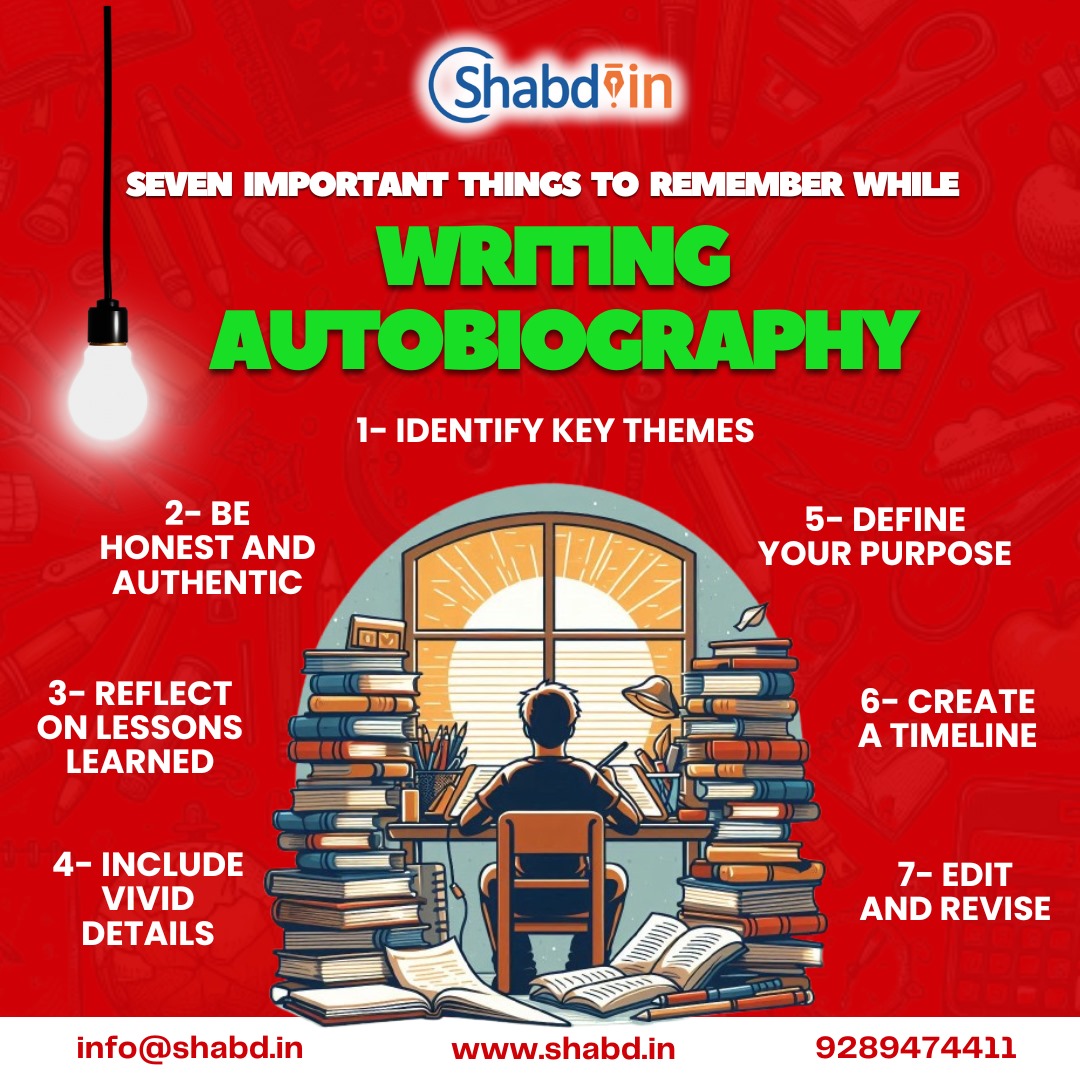Writing an autobiography can be a rewarding journey of self-reflection and storytelling. Here’s a detailed description of the seven key things to remember while writing an autobiography:
1- Identify Key Themes:
Reflect on the central themes of your life. What are the major turning points, struggles, or achievements that define your personal journey? Identifying these will provide structure to your narrative, guiding readers through the essential messages you want to convey.
2- Be Honest and Authentic:
Authenticity is crucial in autobiography writing. Share your truths and insights without embellishing or omitting parts of your story. Readers connect deeply with genuine, vulnerable experiences, and being honest can add credibility and richness to your writing.
3- Reflect on Lessons Learned:
A good autobiography does more than recount events—it provides wisdom and lessons learned along the way. Reflect on how certain experiences shaped you, what they taught you, and how you evolved. This reflection adds depth to your story.
4- Include Vivid Details:
The strength of your autobiography often lies in the vividness of your descriptions. Paint clear pictures with sensory details, engaging the reader’s imagination. Use dialogue, settings, and emotions to make the experiences come alive.
5- Define Your Purpose:
Ask yourself why you are writing this autobiography. Is it to inspire others, to reflect on a particular chapter in your life, or to preserve your legacy for future generations? A clear sense of purpose will help you stay focused and aligned as you write.
6- Create a Timeline:
Organize your memories and events in a logical sequence. You don’t have to follow a strict chronological order, but having a clear timeline will help you structure your narrative and avoid confusion for your readers.
7- Edit and Revise:
Writing an autobiography is a process of continuous refinement. After the initial draft, go back and review your work with a critical eye. Remove unnecessary details, clarify the message, and enhance the emotional resonance. Editing is crucial to ensure your story is compelling and coherent.
These elements will guide you in crafting an autobiography that is both insightful and engaging, giving readers a genuine look into your life’s journey.

